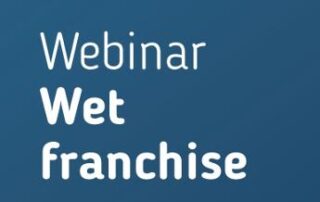Eviction of the franchisee from the leased property in preliminary relief proceedings
On 22 December 2014, the Court of Appeal in The Hague (ECLI:NL:GHDHA:2014:4103) quashed the preliminary injunction in the first instance, in which – despite the franchisee’s considerable and long-term payment arrears – the claimed eviction of the leased property was rejected. I already commented on this summary judgment at first instance. See http://tinyurl.com/lobgb3s .
The issue concerned the following. A franchisor has made a car wash available for operation, under the formula of the franchisor. The franchisee left a large payment arrears, after which the franchisor demanded eviction of the car wash in interlocutory proceedings, now that the franchisor had dissolved the franchise agreement out of court. In the first instance it was ruled that there is a lease of business space pursuant to Article 7:290 paragraph 2 of the Dutch Civil Code and that it is therefore not permitted – in view of the security of tenure – to dissolve the lease contract extrajudicially, as the franchisor had done. The preliminary relief judge does not get round to assessing whether there is a shortcoming in other aspects of the franchise agreement.
The Court of Appeal has established that the franchise agreement between the parties also provides for the use of a site with a car wash and a building that serve the franchise formula to be operated. It is unmistakably a lease of business premises, if not within the meaning of Article 7:290 of the Dutch Civil Code, then at least within the meaning of Article 7:230a of the Dutch Civil Code. In this regard, the Court of Appeal refers to the judgment of the Supreme Court of 11 April 2014 (ECLI:NL:HR:2014, 899). For the time being, the Court of Appeal is of the opinion that both aspects of the agreement are so closely related that one cannot do without the other, whereby the rental element in the franchise agreement is not of minor importance. This means that pursuant to Section 6:215 of the Dutch Civil Code, the mandatory lease provisions apply to the franchise agreement, dissolution of the agreement outside court is not possible. So far, the Court of Appeal follows the judgment of the first instance.
The Court of Appeal considers it plausible that, among other things, there is a substantial and long-term payment arrears. In addition, the franchisee fails to always communicate the weekly number of washings, which deprives the franchisor of the possibility of calculating the amount of the franchise fee. This results in a shortcoming in the fulfillment of the franchise agreement between the parties. The starting point is that any breach of contract constitutes grounds for dissolution of the agreement, unless the shortcoming does not justify dissolution with its consequences due to its special nature or minor significance in the given circumstances. The Court of Appeal is of the opinion that the shortcoming is so serious that the court in the main proceedings will in all probability dissolve the franchise agreement (including the rental agreement) between the parties. Therefore, the claim for eviction of the leased property and cessation of exploitation in this appeal of summary proceedings is still allowed.
Despite the legal impossibility of dissolving a rental agreement for a location without a judgment on the merits, the lessor can, under certain circumstances, already demand the eviction of the rented property in preliminary relief proceedings. In preliminary relief proceedings, an estimate will then be made of the judgment that a court on the merits will have. The more serious the failure of the franchisee to perform, the greater the chance that the claimed eviction will be granted in summary proceedings. In addition to the existence of payment arrears (in rent), the breach of other obligations under the franchise agreement may also be important, such as damaging the good name of the franchise formula.
Mr AW Dolphijn – Franchise lawyer
Ludwig & Van Dam Franchise attorneys, franchise legal advice. Do you want to respond? Mail to dolphijn@ludwigvandam.nl

Other messages
Ludwig & van Dam co-hosts webinar NFV Wet Franchise
Webinar 'Law Franchise' On October 28, 2022, Ludwig & ...
Can car dealers invoke the Franchise Act?
On 1 January 2021, the Franchise Act entered into ...
No formula change, but further development by the franchisor
The District Court of Maastricht ruled on 6 October 2022, ...
Know-how and the post-contractual competition prohibition
Has transferable know-how worthy of protection been transferred so that ...
Merged franchisor competes with proprietary franchisees
If a franchise organization is taken over, the intention ...
How does the Franchise Act protect novice franchisees?
Starting your own business is in almost all cases a ...






